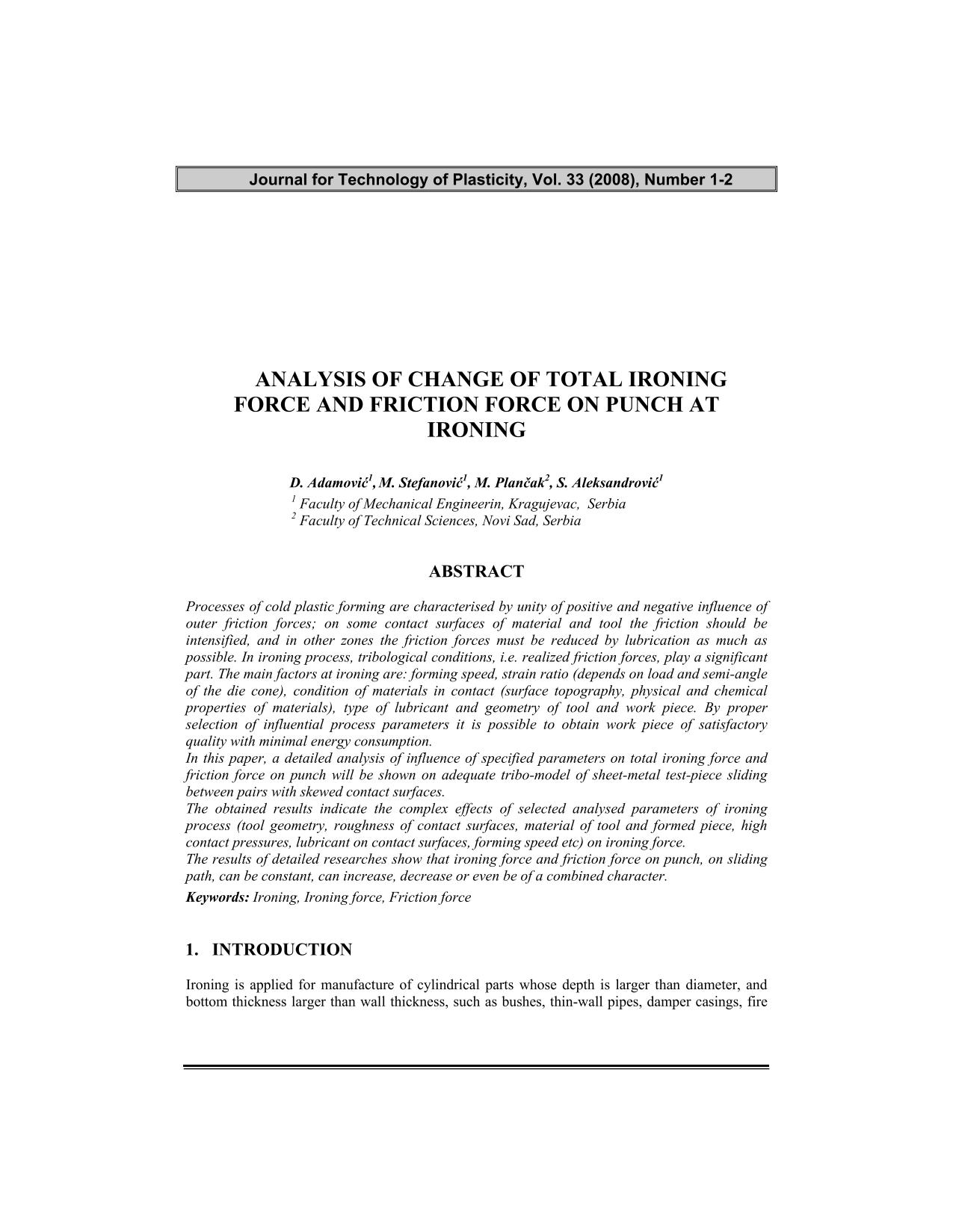Analysis of change of total ironing force and friction force on punch at ironing

Published 2008-12-26
abstract views: 281 // Full text article (PDF): 114
Keywords
- Ironing,
- Ironing force,
- Friction force
How to Cite

This work is licensed under a Creative Commons Attribution 4.0 International License.
Abstract
Processes of cold plastic forming are characterised by unity of positive and negative influence of outer friction forces; on some contact surfaces of material and tool the friction should be intensified, and in other zones the friction forces must be reduced by lubrication as much as possible. In ironing process, tribological conditions, i.e. realized friction forces, play a significant part. The main factors at ironing are: forming speed, strain ratio (depends on load and semi-angle of the die cone), condition of materials in contact (surface topography, physical and chemical properties of materials), type of lubricant and geometry of tool and work piece. By proper selection of influential process parameters it is possible to obtain work piece of satisfactory quality with minimal energy consumption. In this paper, a detailed analysis of influence of specified parameters on total ironing force and friction force on punch will be shown on adequate tribo-model of sheet-metal test-piece sliding between pairs with skewed contact surfaces. The obtained results indicate the complex effects of selected analysed parameters of ironing process (tool geometry, roughness of contact surfaces, material of tool and formed piece, high contact pressures, lubricant on contact surfaces, forming speed etc) on ironing force. The results of detailed researches show that ironing force and friction force on punch, on sliding path, can be constant, can increase, decrease or even be of a combined character.

